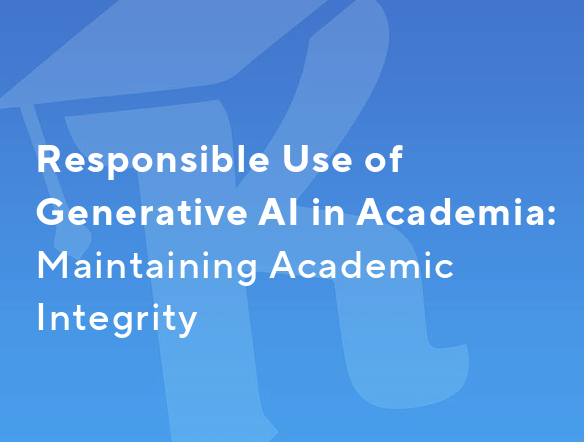The integration of artificial intelligence (AI) technology into academia brings immense potential for enhancing learning. The technologies have the potential to act as a multipurpose tool to streamline how we analyze data, draft ideas and clarify complex topics.
In a recent piece, Knack tutor and researcher Antonina Shachar explored how AI technologies can be harnessed in academia while maintaining academic integrity and enhancing learning. Here are three of our key takeaways from the research:
- The Importance of Critical Thinking: Although AI-generated content and data analysis can increase efficiency in higher education, the software lacks the human element of critical thinking. This lack of critical thinking requires oversight from a human user to ensure accuracy and integrity when used in the higher education space, especially to avoid plagiarism which could result in severe academic penalties.
- Original Thought vs. AI-Generated Thoughts: Generative AI may produce human-like text but they cannot produce true original thoughts. When used in academia, AI software like ChatGPT should be used to brainstorm ideas, draft outlines and seek clarity on complex topics rather than generate full pieces of content due to its inability to draw on human experience or provide meaningful reflection.
- Limitations: AI technology can be extremely useful when it comes to quickly brainstorming ideas, drafting outlines or analyzing data. However, it is extremely limited in what it can produce in regards to current events, new discoveries or niche topics due to limited training knowledge and data; sometimes even generating incorrect or misleading information.
With these limitations and considerations from our research, it’s clear generative AI can be powerful in any field. But in the world of academia it should be scrutinized and cross referenced heavily to ensure academic integrity.
Download the complete PDF to learn more about how to leverage AI technology without compromising academic integrity:
